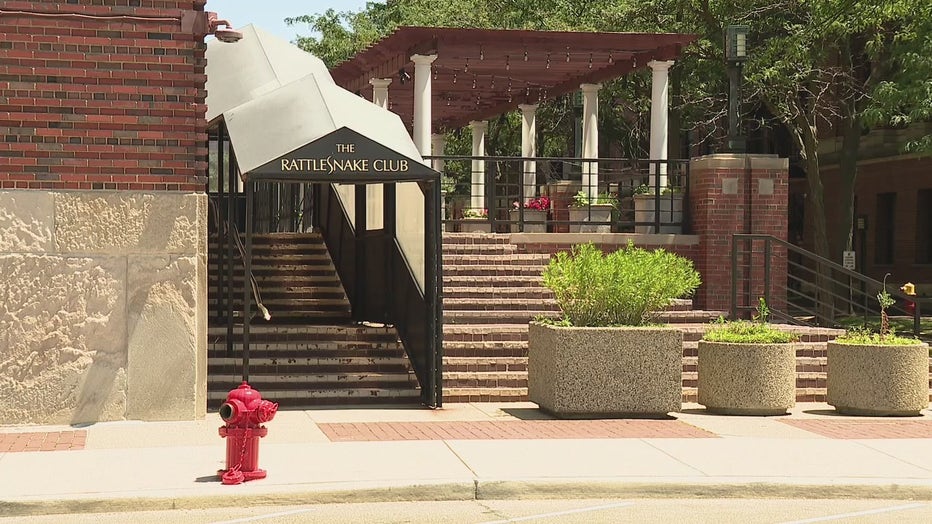The Rattlesnake Club in Detroit closes for good after 36 years of fine dining

Detroit's Rattlesnake club permanently closes after 36 years
The restaurant first opened at 300 River Place Drive in 1988. It was known for its fine dining, Detroit River view, and customer service.
DETROIT (FOX 2) - One of Detroit's most iconic restaurants, The Rattlesnake Club, suddenly closed its doors for good after nearly four decades.
"The closing of a restaurant that’s been open for 36 years and is clearly a staple in its community is definitely unfortunate news," said Michigan Restaurant and Lodging Association's (MLRA) vice president of communications and brand strategy, Emily Daunt.
The restaurant first opened at 300 River Place Drive in 1988. It was known for its fine dining, Detroit River view, and customer service.
The Rattlesnake Club's last day of operating was June 28. Mark Tuttle, the vice president and chief financial officer of the restaurant, said employees were offered severance pay.
Like many other restaurants, The Rattlesnake Club suffered during the COVID-19 pandemic and has not fully recovered since.
"Changing patterns in dining habits, office occupancy and traffic have negatively impacted revenues since the Covid pandemic," Tuttle said. "Private events, which had always been a pillar of the business, have not recovered."

Guy Fieri's The Chicken Guy also announced the closure of its Livonia location after it recently celebrated its one-year anniversary.
"It’s an example of the state of the industry at the moment," Daunt said. "Michigan’s restaurant industry is really in a more precarious position."
The MRLA recently conducted a state of the industry survey and its results are alarming.
"We found that sales are down with only one in four restaurants experiencing sales growth compared to last year; 60% of restaurants report that they have less customer traffic than they had a year ago," Daunt said.
The findings also show that inadequate staffing is still an issue. However, the MRLA says things could become even more grim.
"We’re awaiting a Supreme Court ruling that could make it even worse," Daunt said.
The Michigan Supreme Court ruling would be significant because it could increase the state’s minimum wage to around $14 per hour and eliminate the tip credit – which allows employers to count a portion of an employee's tips towards the minimum wage they owe them.
"One in five full service restaurants say they would close permanently if they lost the tip credit, and we would see an estimated 40,000-60,000 jobs lost essentially right away," Daunt said.
According to the MRLA, the culprit for much of what’s happening in the restaurant industry is a result of the COVID-19 pandemic.
But the MRLA is doing what it can to support the industry.
"We’re really encouraging a legislative solution to retain that tip credit," Daunt said. "That's the most crucial thing that will save a lot of these restaurants and businesses right now. We’re at the table every day, making sure that we get that done."

